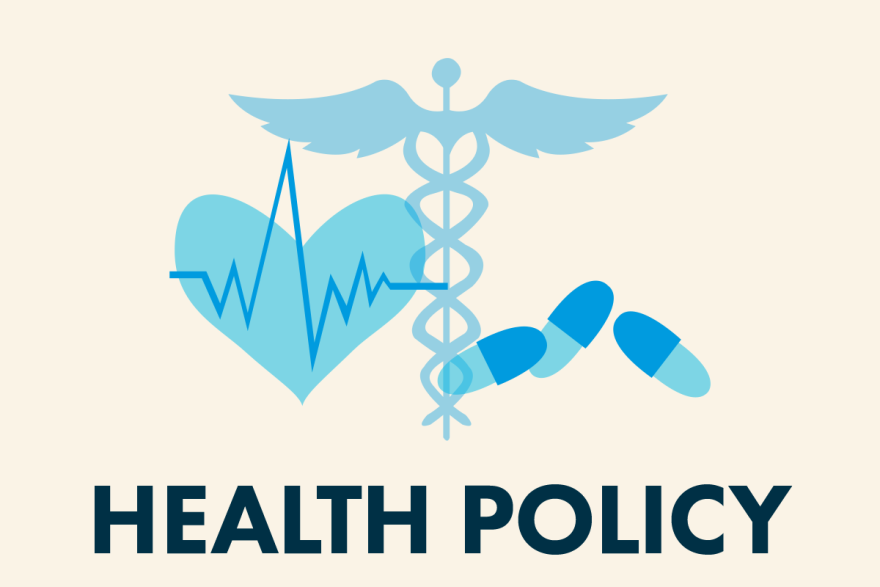Department of Health and Human Services Commissioner Jeff Meyers said he made multiple attempts throughout 2016 to clarify whether the federal government approved of New Hampshire’s use of provider donations to fund its current Medicaid expansion plan — but the agency never gave him a definitive "yes" or "no" answer last year.
"It was difficult to get all of the meetings that we felt we needed and felt we were due, in order that we could run all of these issues to the ground," Meyers said Tuesday. "Throughout this time, there was a lot of back-and-forth with the federal government, and at no time did CMS (Centers for Medicare & Medicaid Services) tell us that we could not do so."
In recent months, the federal government has taken a harder line. In July, CMS told New Hampshire it has until 2019 to come up with a new plan for its Medicaid funding — or it could risk the loss of federal support, which would effectively end the program.
The federal government’s deadline for coming up with a new funding plan coincides with when the current program would have expired on its own, without reauthorization from the Legislature. New Hampshire lawmakers first expanded Medicaid in 2014, but only on a two-year basis, and it was renewed again in 2016 — but only for another two years.
Both Medicaid expansion renewal plans had bipartisan support. In 2016, a key part of getting otherwise skeptical Republican lawmakers to sign on involved coming up with a way to avoid spending extra state money on the program. That’s where the provider donations came in.
Meyers said he began asking the federal government for feedback on lawmakers’ plan to use provider donations to help fund Medicaid expansion as the plan to do so was still in its infancy.
The federal agency that oversees Medicaid has historically been skeptical of the use of hospital or provider donations of any kind when it comes to funding such programs, Meyers said — because of concerns that it could create a conflict of interest between those providers and the public agencies that administer the programs.
As the proposal to reauthorize New Hampshire's Medicaid expansion was still making its way through the Legislature, Meyers said he asked the private law firm acting as his agency's legal counsel to review an early draft. Unlike the plan that ultimately passed, that original version called for mandatory, not voluntary, donations from health providers.
"I in fact informed [legislative] leadership at that time that there were issues with the structure of the donation program and worked with our outside law firm to redraft the voluntary provider donations into what it was at the time it was enacted into law," Meyers said.
Meyers said the state provided the revised plan to CMS, and they "continued to ask questions and voice concerns about how the donations were structured and how they were utilized."
Days after the Legislature passed the final plan, the law firm representing DHHS wrote a new legal memo spelling out the state's defense of the donations. Meyers said that, too, was shared with CMS on April 8, 2016.
"I continually asked to have meetings with lawyers at CMS so that we could go through the legal issues, because we believe and still believe that our voluntary provider donation program as reflected in the current law meets all applicable federal requirements," Meyers said. "The issue that I had was, we could not get an answer from CMS.”
New Hampshire officials met with CMS officials in Washington in September 2016 to answer questions and reiterate the state’s defense of its funding structure, Meyers said.
“I continued to follow up through the fall saying, we’ve made our case and you have our legal analysis, and we’d like your response,” Meyers said. “And they never provided a response.”
CMS began reaching back out to the state with questions about the use of the donations in April, Meyers said, after the state submitted its first quarterly financial update on Medicaid costs to the federal government. This would have also been shortly after the state started using provider donations to fund its share of expanded Medicaid coverage, he noted, because the federal government covered the full cost until the beginning of 2017.
In light of the fact that a new administration was in charge and since he still had lingering questions about the issue, Meyers said he asked to meet with federal officials again to explain the funding structure. In June, Meyers said, he traveled to Washington with Attorney General Gordon MacDonald and Gov. Chris Sununu’s legal counsel to “reengage” on the issue.
“I think the story here should be that two administrations worked very hard to make sure that more than 40,000 people are not going to lose their health insurance,” Meyers said. “And that we got the federal government to agree to allow us to maintain the program throughout the term that it’s authorized currently in New Hampshire as well as under federal approval.”
As for what the state should do moving forward, Meyers said he still believes the existing plan is sound — but it’s too early to specify how the Legislature should rework the funding structure when the issue comes back up in 2018.






